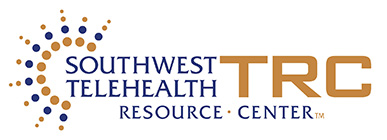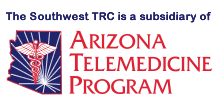It’s a long way and lots of hours flying from Tucson, AZ to Muscat, Oman but I had the great opportunity and pleasure to attend the 7th International Conference on Health Issues in Arab Communities with five of my colleagues from the University of Arizona.
Dr. Iman Hakim, Dean of the College of Public Health and founding director of the Global Health Institute (GHI) arranged a session on “Transcontinental Collaborative Programs” at the UofA and that’s where telemedicine comes in.
She highlighed the “Global Health Institute Partnership with Middle-Eastern Institutions and Organizations” which prepares a globally trained, inter-professional workforce by offering global health training programs to international public healt students and health care professionals.
Dr. Michael Katz, Science Director for the College of Pharmacy International Affairs, discussed “US Training of Clinical Pharmacy Faculty: Kingdom of Saudi Arabia Experience”, a program for junior clinical pharmacy staff that provides clinical pharmacy and pharmacy education experience that they would otherwise not have access to.
Dr. Ivo Abraham, Director of the Center for Health Outcomes and Pharmacoeconomic Research, talked on “The E3O Partnership with the Ministry of Health, Kingdom of Saudi Arabia” which improves the quality, efficiency, and outcomes of medication use and pharmaceutical care in KAS via workforce development, research and innovation, and translation.
Dr. Joan Shaver, Dean College of Nursing, discussed “Building the Global Capacity for a Highly Functional Nursing Workforce” for advancing nursing practice across cultures in particular at the University of Tabuk, KSA. It uses online and onsite learning tools cooperatively designed on topics of mutual agreement. This allows for innovative partnering across distances.
Dr. Charles Cairns is PI of the National Collaborative for Bio-preparedness and the Director of the US Critical Illness and Injury Trials Group that developed a data system that enhances bio-surveillance, situational awareness, emergency preparedness and response. It integrates near real-time data and analysis from global sources and social media for exchanging, analyzing, integrating and disseminating “hot off the presses” data about emerging healthcare events, outbreaks and emergencies.
My talk, “Innovations in Telehealth – New Models for Improving Healthcare Across Borders” discussed how telemedicine solutions are being incorporated into mainstream delivery of medical, educational, and administrative services around the globe, highlighting Arizona’s international outreach efforts including the Panama National Telemedicine Program and the International Virtual e-Hospital (IVeH).
In preparing I must admit I initially did not know much about telemedicine in this region, but am happy to report that there are lots of programs being developed and taking hold in the Middle East. As with every new meeting I attend, I was encouraged and warmed by the dedication of those from around the world and from various cultures and backgrounds reaching out and utilizing their experiences, technological developments, and energy to improve the health status and lives of those in need.


